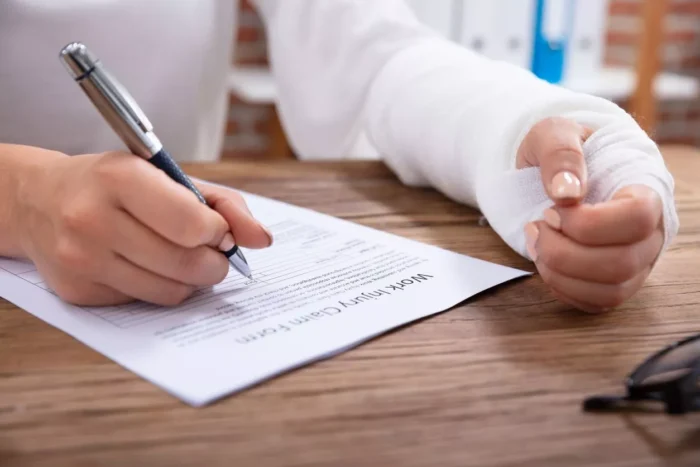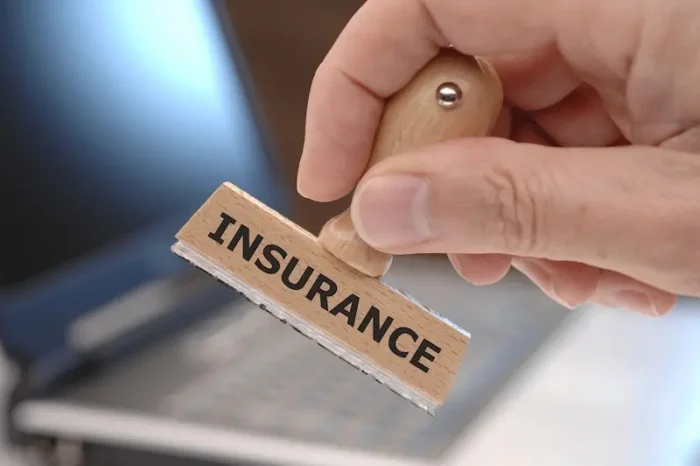
Following an unfortunate accident that has left you injured, you’ve reached the critical decision to initiate a personal injury claim with a personal injury lawyer in Charleston SC. Undoubtedly, this undertaking is accompanied by numerous questions that warrant clear answers and a comprehensive understanding.
These queries encompass inquiries regarding the type of insurance that will come into play, the expected payment, and the timeline for processing your claim. Navigating this challenging process, whether your injury resulted from a car accident, a slip and fall, or another act of negligence, necessitates a profound comprehension of the personal injury claim process.

Consulting with a Personal Injury Lawyer
Your first pivotal step in filing a personal injury claim should be to consult with an attorney specializing in personal injury cases. During this crucial consultation with a Personal Injury Lawyer Charleston SC, you will delve into the specific details of your case, such as the circumstances surrounding the accident, the nature and extent of your injuries, and any potential witnesses or supporting evidence. It is advisable to consult with multiple attorneys to evaluate their experience and determine who can assist you in achieving the best possible outcome.
Investigation and Gathering of Evidence
Upon retaining the services of a personal injury attorney, they will initiate a thorough investigation into your case. This entails gathering compelling evidence to substantiate your claims and determining the total extent of your losses. The evidence collection process may involve procuring witness testimonies, scrutinizing accident reports, analyzing medical records, and cataloging photographic evidence to fortify your case.
Negotiating with Insurance Companies
Your attorney will act as your advocate in negotiations with the insurance provider of the party at fault. Their primary objective will be to secure a fair and equitable settlement covering a spectrum of your losses, including lost income, medical expenses, pain and suffering, and other damages. Having an adept negotiator by your side is imperative for optimizing the compensation you rightfully deserve.

Filing a Lawsuit
Should negotiations with the insurance company prove unsuccessful in yielding just compensation, your personal injury lawyer may recommend filing a lawsuit. This formal legal action commences with the filing of a summons and complaint and could potentially lead to a trial if a settlement cannot be reached through negotiation.
Discovery Phase
The discovery phase within the litigation process is a pivotal stage where both parties involved in the legal dispute embark on an extensive and transparent exchange of critical case-related information and essential supporting documentation. This phase serves as the bedrock for the subsequent legal proceedings, enabling a comprehensive understanding of the merits and intricacies of the case.
Central to the discovery process is collecting and disseminating information vital to the case’s progression. Your attorney plays a crucial role in orchestrating this process to ensure your claim’s thorough and equitable presentation. To achieve this, several vital activities are undertaken:
Depositions from Witnesses: Your attorney may conduct depositions of witnesses relevant to your case. Depositions involve a formal, recorded interview where witnesses provide sworn testimony. This process is essential for gathering firsthand accounts and clarifications of events surrounding the incident, ensuring that their statements can be used effectively to support your claims during the legal proceedings.
Acquiring Additional Evidence: In addition to witness statements, your legal representative may take steps to acquire supplementary evidence. This can encompass a variety of elements, such as expert opinions, expert witnesses, and scientific data, all of which contribute to reinforcing the strength of your case. By procuring such evidence, your attorney aims to provide a solid foundation for your argument and counter any challenges from the opposing party.
Requests for Pertinent Documents: Your attorney may also issue formal requests for relevant documents that could bolster your claim. This includes requesting records, reports, emails, photographs, or other documents pertinent to your case. These documents can serve as valuable pieces of evidence to substantiate your assertions and substantiate your damages.
The overarching goal of the discovery phase is to foster transparency, establish a level playing field between both parties and ensure that all pertinent information is shared openly. By meticulously pursuing depositions, securing additional evidence, and obtaining essential documents, your attorney endeavors to build a robust and compelling case in your favor. This diligent discovery process ultimately contributes to the overall success of your personal injury claim and aids in reaching a fair resolution or verdict in your legal dispute.

Settlement and Mediation
In the intricate world of personal injury litigation, the path to resolution often detours through mediation and settlement negotiations. Before the finality of a courtroom trial, these stages emerge as integral components of the process. In this crucial phase, the pursuit of an equitable settlement or resolution takes center stage to resolve the matter without the need for protracted legal proceedings.
Mediation is a cornerstone of this phase, serving as a forum where both parties can engage in constructive dialogue under the guidance of a neutral third party, the mediator. This mediator is a skilled professional, impartial, and skilled in conflict resolution who acts as a facilitator for the negotiation process. Their role is to foster effective communication between the parties and help them explore potential areas of compromise.
During mediation, you, alongside your attorney, will participate actively, presenting your case and advocating for your rights, concerns, and demands. The mediator, while remaining neutral, aids in ensuring that discussions remain focused, productive, and respectful, ultimately guiding both sides toward a mutually acceptable resolution.
Your Attorney’s Vital Role
The ultimate goal of mediation and settlement negotiations is to reach an agreement that is just and satisfactory for both parties, circumventing the need for a potentially costly and protracted trial. It’s an opportunity to find common ground and a fair resolution while maintaining some level of control over the outcome rather than leaving the decision solely in the hands of a judge and jury.
If an amicable settlement is reached during this phase, it closes the legal dispute and allows you to receive the compensation you deserve more swiftly. However, in unsuccessful negotiations, the legal process may continue to a trial, where your attorney will again be a staunch advocate for your rights and interests in the pursuit of justice.

Going to Trial
Your case will proceed to trial if discussions and mediation efforts fail to produce a satisfactory outcome. In a courtroom, your personal injury attorney will present your case before a judge and jury, articulating your case for the compensation you are entitled to.
In specific circumstances, either party may appeal the court’s ruling, which could protract the legal process and necessitate further legal action.
The culmination of your personal injury claim will result in compensation once a verdict is rendered in a trial or when a settlement agreement is reached. This compensation is designed to reimburse you for any lost wages, medical expenses, and other losses that have arisen as a direct consequence of the accident.
















